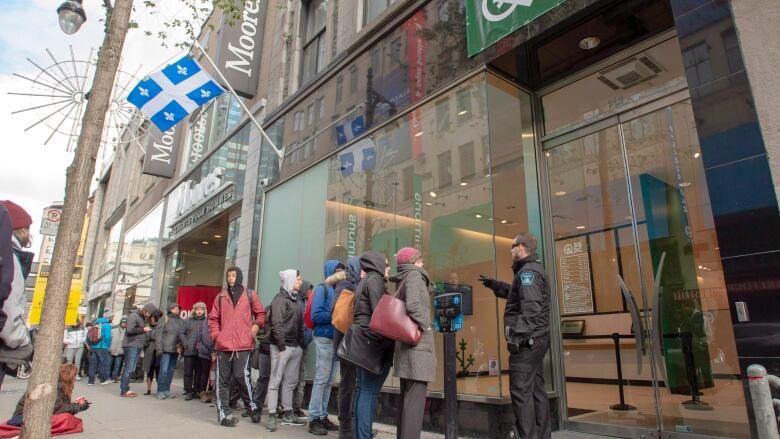No pot brownies in Quebec as government clamps down further on cannabis
New rules will also bar other cannabis desserts and sweets, as well as skin creams

The Quebec government wants to banthe sale of cannabis candies and desserts, including chocolate, even as the sale of edibles will become legal in the rest of the country this fall.
In a statement issued Wednesday, the province's junior health minister said federal cannabis regulationsdon't go far enough in protecting children from accidentally consuming the drug.
"To reduce the risk of accidental poisoning in children, we are proposing a ban on the sale of products that are attractive to them,like chocolate and gummies,"Lionel Carmantsaid in the statement.
"This will also allow us to reduce [the consumption] of cannabis products in general."
The federal regulations on cannabis edibles, topical products such as ointments and skin creamsand extracts are set to go into effect on Oct. 17, 2019.
They do not ban the sale of cannabis candies and other sweets, but dorequire packaging be plain and child-resistant.
The federal rulesalso state edible products can't contain nicotine;any addedvitamins, minerals oralcohol; and are allowed to have only limited amounts of caffeine.

The regulations announced Wednesday are the latest measures proposed by the Coalition Avenir Qubec government to restrict cannabis usein the province.
"I understand that," Linda Bassicktold CBC Wednesday about the restrictions on edibles. "It looks deceiving and it looks like candy and they are quite strong. That's one of the reasons why I don't use them is because they're so strong. I don't like that. I feel like I can't regulate it as easily that way," she said.
Christopher Jabs says he's not convinced the restriction should be so extensive, as long as people are cautious about storing their products. "But then again it could still lead to a kid finding it. It's like guns. You don't really want it lying around," he said.
The government tabled a bill last yearthat seeks toraise the legal age of cannabis consumption to 21 in Quebec the highest legal age in Canada.
The CAQ hadalsoinitially wanted to ban smoking cannabis in public places, such as parks. But they abandoned that idea in May, saying it was unenforceable.
Cannabis creams to be banned as well
The regulations announced Wednesday only target edibles that might grab the attention of children. Other edibles, such as cannabis-infused butter, will be allowed. But these edibles too face new rules:
- A package of solid edibles cannot contain more than 10 mg of THC (which is the same limit as federal regulations).
- Liquid cannabis edibles cannot contain more than 5 mg of THC per package (the federal limit is 10 mg).
- Cannabis skin, hairand nail creams will also not be allowed in Quebec.
Consumers seem to be less partial to restrictions on cannabis skin oils and cream. "I don't think that's necessary,"Bassick said. "CBD [cannabidiol] oil is not the part that makes you intoxicated. It's just the part that relaxes you."
Felicity Little agrees. "Some of that stuff could help a lot of people," she said. "People probably with really dry skin that only CBD can help."
TheCAQhas justified its tougher approach to cannabis by citing studies that questionthe drug's long-term impact on young peoples' mental health.
In May, the Montreal Children's Hospital askedparents to keep their cannabis edibles locked up and away from their children.
The new rules will be subject to a 45-day consultation period before they can take effect.












_(720p).jpg)


 OFFICIAL HD MUSIC VIDEO.jpg)
.jpg)



























































































